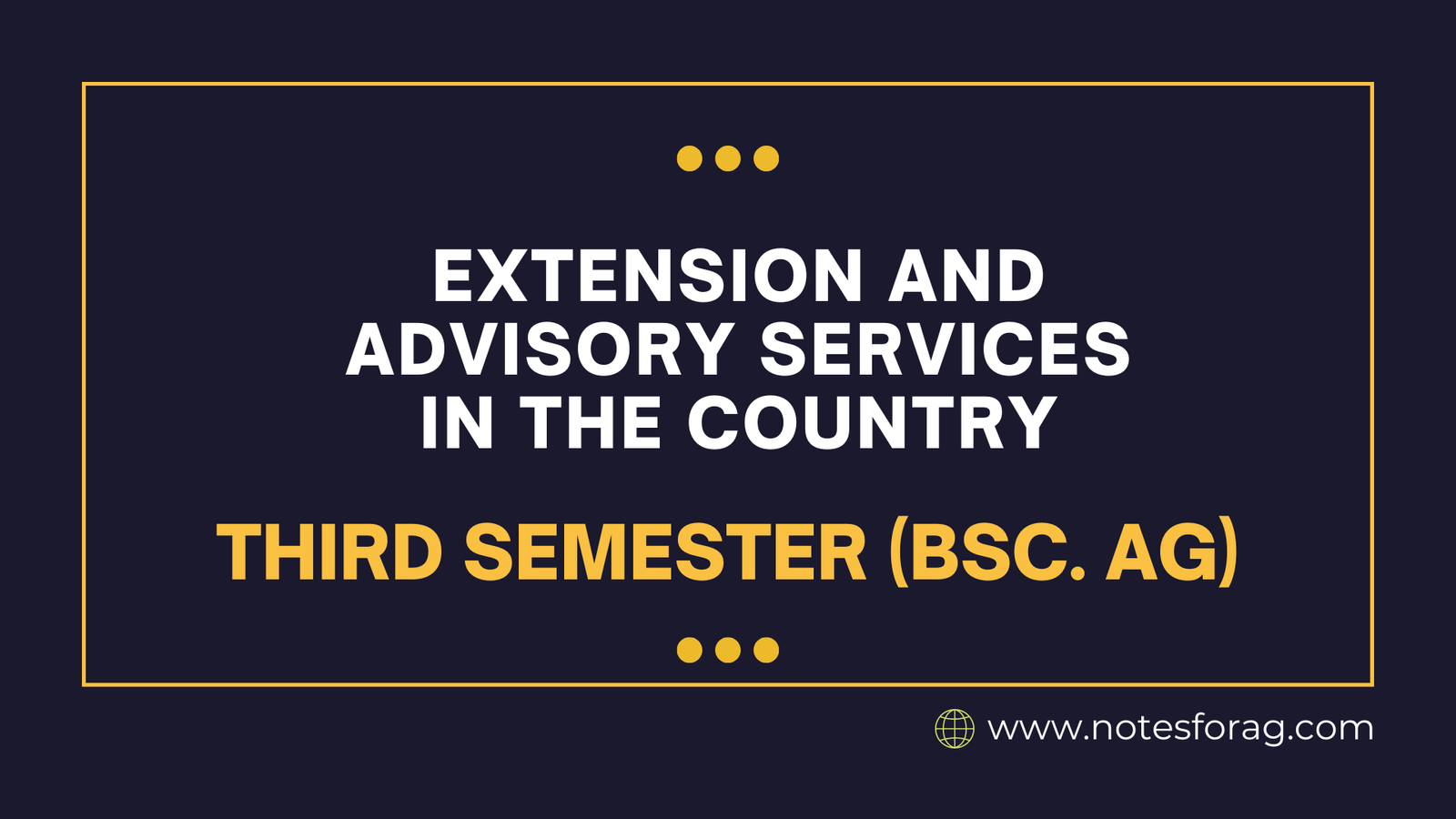Major institutions providing extension and advisory services in the country include government agencies, agricultural research institutions, non-governmental organizations (NGOs), private sector firms, farmer-based organizations (FBOs), and international organizations.These institutions collaborate to provide technical advice, training, and assistance to farmers, assisting them in adopting better agricultural methods, gaining market access, and increasing productivity. Together, they serve an important role in boosting agricultural development and rural livelihoods.
Table of Contents
Overview of Extension and Advisory Services
Extension and advisory services are critical components of agricultural and rural development projects. These services are intended to provide farmers, entrepreneurs, and communities with the information, best practices, and skills they need to increase productivity and sustainability in their agricultural activities. Extension services have its roots in early agricultural education programs, with the primary goal of transferring knowledge from research institutes to farmers in order to improve crop yields and rural livelihoods.
Extension and consulting services have developed over time to meet changing agricultural environments, technological breakthroughs, and societal needs. Today, these services not only aim to boost production, but also to address food security, climate change resilience, and rural poverty alleviation. They play an important role in promoting innovation and adapting research findings to local contexts, ensuring that the information delivered is relevant and useful to end users.
The basic goals of extension and advisory services are to promote sustainable agricultural practices, increase food production, and improve market access for rural communities. Furthermore, these institutions seek to strengthen community networks and foster participatory techniques, allowing farmers to become active actors in their own growth. Extension services help to bridge the essential gap between research and practice by offering training, technical guidance, and resources.
Key Institutions Involved in Extension Services
1. Government agencies:
- Ministry of agriculture: The principal government entity in charge of agricultural policies and extension services. It frequently provides technical advice, training, and support to farmers via extension officers.
- Agricultural Development Programs (ADP): These are state or regional programs that help support grassroots agricultural extension efforts.
2. Agricultural Research Institutions:
- National Agricultural Research Institutes (NARI): These institutions conduct research and communicate findings to farmers using extension services.
- Universities and colleges of agriculture: Academic institutions also contribute by providing extension and advising services, typically through agricultural training and research.
3. Non-governmental organisations (NGOs):
- Various non-governmental organizations (NGOs) provide extension services in areas such as sustainable farming methods, rural development, and food security. They frequently work in partnership with local communities and government programs.
4. Private Sector:
- Agricultural Input Suppliers: Companies that provide seeds, fertilizers, and other inputs frequently offer advice services as part of their product promotion and support for farmers.
- Consulting firms: Private consulting services provide expert advice on farm management, technological adoption, and market access.
5. Farmers’ Based Organizations (FBOs):
- Farmer cooperatives, groups, and unions also offer peer-led extension programs. These organizations frequently coordinate training, field demonstrations, and collective bargaining for inputs or market access.
6. International organizations:
- The Food and Agriculture Organization (FAO), the World Bank, and other international organizations provide technical help, finance, and consulting services to promote agricultural development and rural betterment.
These organizations collaborate, frequently in partnerships, to provide comprehensive extension and advisory services, ensuring that farmers have access to the most recent knowledge, technologies, and resources.
Frequently Asked Questions
What are extension and advisory services in agriculture?
Extension and advisory services help farmers gain the knowledge, skills, and assistance they need to enhance their farming practices, adopt new technology, and boost production. Crop management, livestock care, and market access are frequently addressed through training, demonstrations, and technical assistance.
What role do government agencies play in extension services?
Government agencies, primarily through the Ministry of Agriculture and state-level initiatives, give farmers with training, technical guidance, and field support. They ensure that national agricultural policies are implemented at the grassroots level and that farmers have access to current information and resources.
Related Articles

